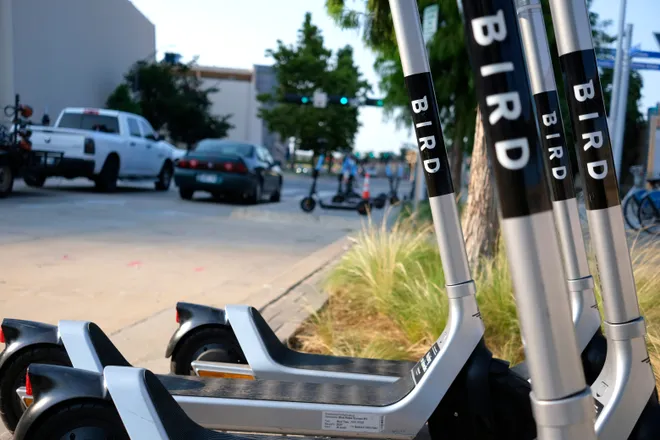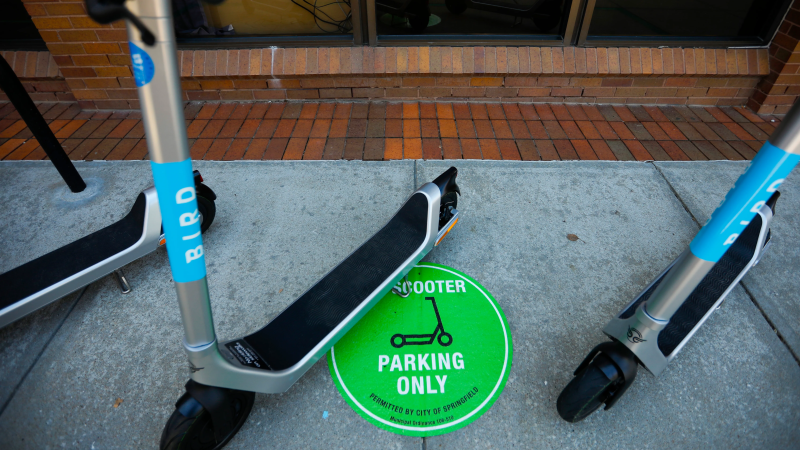Electric scooter company Bird files for bankruptcy. It was once valued at $2.5 billion.

Once valued at $2.5 billion, transportation company Bird filed for Chapter 11 bankruptcy protection in federal court in Florida on Wednesday, the company said in a news release.
The company, known for its trendy electric scooters, is in a "stalking horse" agreement where it will use the bankruptcy proceeding to ease the sale of its assets within the next 90 to 120 days, the company said.
"The bid is subject to higher and better offers, and is aimed at maximizing value for all stakeholders," Bird said.
Bird Canada and Bird Europe are not part of the filing and continue to operate as normal, the company added.
When did trouble begin brewing for Bird?
The Miami-based company, founded in 2017, began facing economic turmoil in 2020 when the pandemic forced customers into lockdown. The scooters were advertised as an environmentally friendly alternative to driving, walking or other public transit methods along with competitors like Lime Micromobility.
The company raised over $275 million in 2019 and pushed its valuation to $2.5 billion before dwindling the following year. In 2021, Bird went public when it merged with a special purpose acquisition company, with its share price decreasing.
In September, the New York Stock Exchange delisted the Bird after the company failed to meet the necessary requirements of keeping its market capitalization above $15 million for 30 consecutive days.
The company’s shares started trading on the over-the-counter exchange later and its stock traded at less than $1 per share as of Wednesday.
"Bird riders have traveled over 300 million miles globally, offsetting an estimated 90 million pounds of carbon emissions from avoided car trips, and playing a pivotal role in hundreds of cities' sustainability goals while making alternative transportation convenient, efficient, and fun," the release said.

The best gadgets of 2023:Robot dogs, e-tricycles and screen-free toys?
Disclaimer: The copyright of this article belongs to the original author. Reposting this article is solely for the purpose of information dissemination and does not constitute any investment advice. If there is any infringement, please contact us immediately. We will make corrections or deletions as necessary. Thank you.







